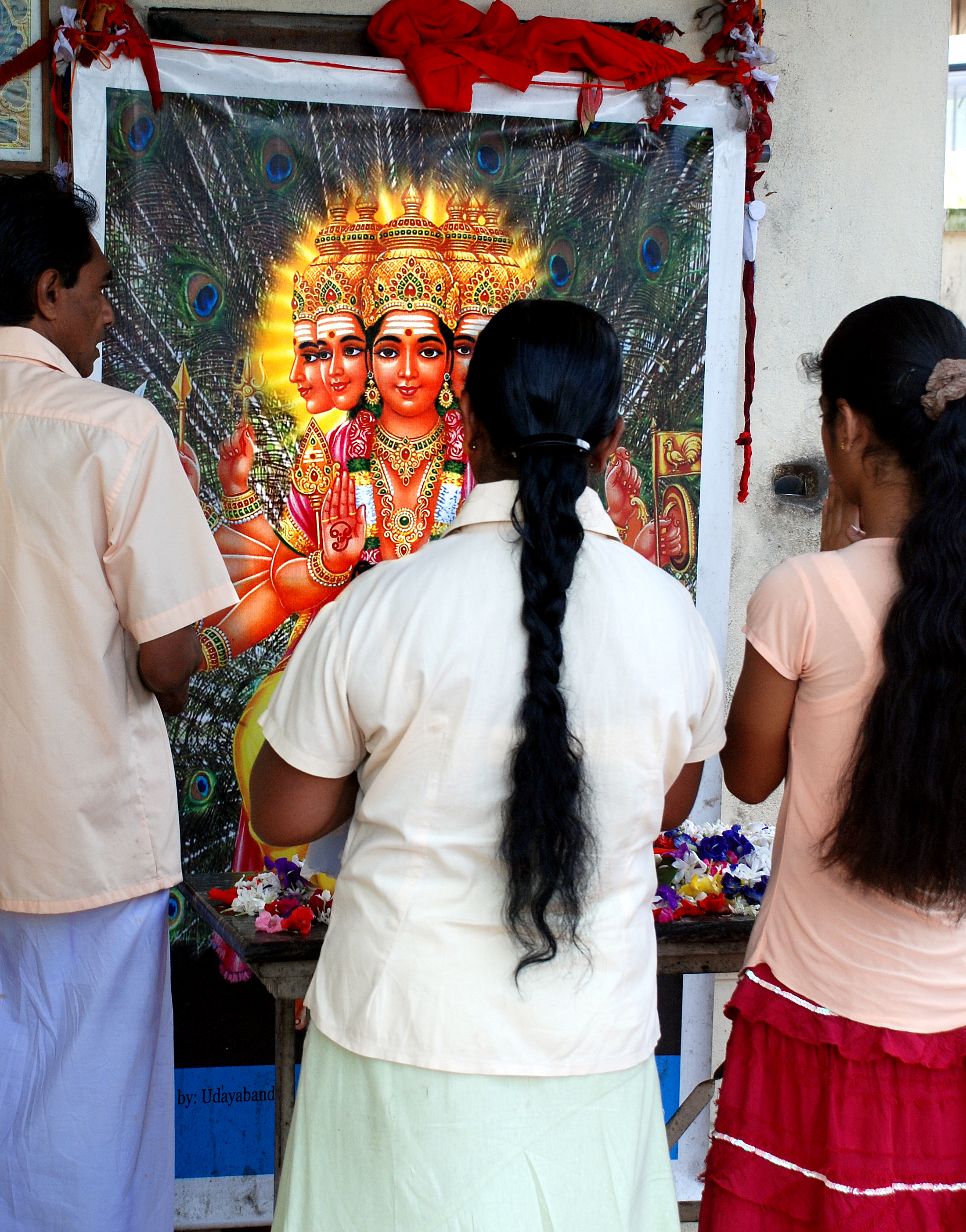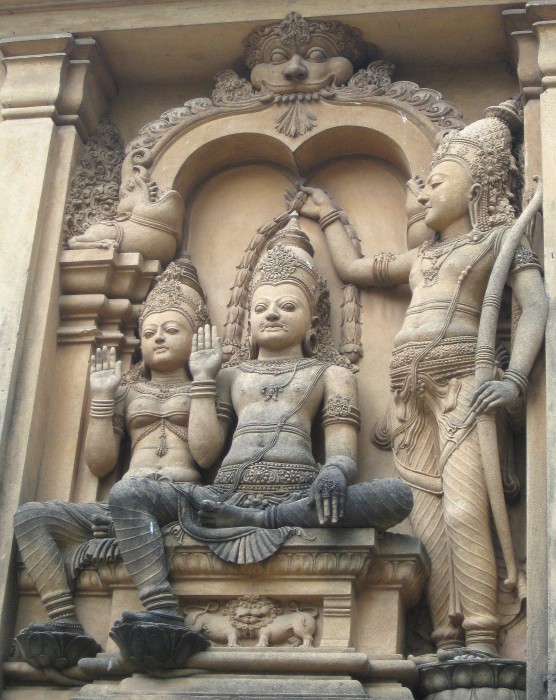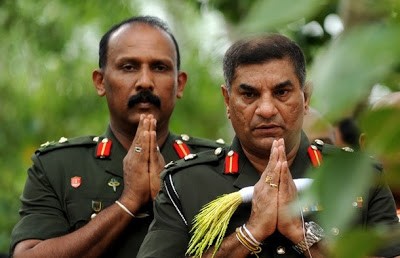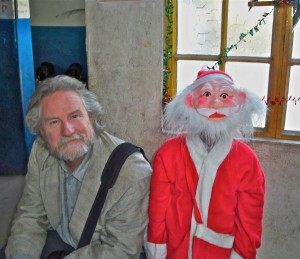Let me begin by saying that this is not a critique, but an effort to contribute to a conversation about issues that have affected me personally as a scholar. In particular, I want to suggest a few approaches that might be straws for the fire in the evolving discourse regarding “Protestant Buddhism” and the general influence of colonialism on Buddhism in Sri Lanka.
My most personal experience in regard to the issues raised by the Religious Studies Project interview with Stephen Berkwitz came while doing research on warfare with Pāli scholars. Again and again, as I directed their attention to jātakas in which the Buddha was a warrior, they would tell me that no such jātaka could exist. Their impression of Buddhist pacifism was so strong that, even though their knowledge of Pāli literature was vastly superior to my own, it had created a blind spot for aspects of their own tradition. It is my impression, [one that might be fruitfully disputed], that that blind spot is a result of the war-weary West’s idealization of Buddhists as the perfect pacifist other. This idealization offered colonized peoples a new and highly attractive moral superiority, which they brilliantly wielded as an act of cultural self-defense. But the power of this naïve Euro-American projection also deprived Sri Lankan’s of the valuable cultural resources that it eclipsed. That blind spot does not obscure the “dark side of Buddhism,” as one recent scholar called the ethics of violence that seem to emerge when we look at Buddhist narrative literature, but rather obscures a richly nuanced and flexible ethic that might have provided rich resources for Sri Lanka’s civil war and postwar reconciliation. There could not be more at stake for the nation that gave the world the suicide-bomber. A similar kind of effect can be seen among young Tibetan refugees, many of whom reject Buddhism, generally blaming its pacifism, a pacifism that never existed, for the loss of their country. The disappointment of Western pacifists here is not unlike the reaction of early Orientalists who, disappointed by the ritualism and deity-worship they found in living Buddhist cultures, described a degenerate Buddhism.[1]
One of the uncomfortable aspects of these kinds of critiques, including my own, is that once again Western scholars seem to claim the high ground and reveal Sri Lankans as passive victims of false consciousness. However, we should remember that cultural heroes like Dharmapala and Walpola Rahula [whose What the Buddha Taught is still found in undergraduate syllabi and dharma-center curricula] knew our languages, culture, values, scriptures and scholarship, including everything ever written about Buddhism in the West, far better than we knew theirs. They exerted great influence on the presentation of their tradition and, along with Neo-Vedānta, powerfully influenced American and European thought. This was not a passive or even merely reactive endeavor. In my experience, Sri Lanka is extraordinary among post-colonial nations for the cosmopolitanism, power and sophistication of its intellectuals. Dharmapala was perfectly poised to open up a can of whoop-ass on naïve Americans at the World’s Parliament of Religions in Chicago in 1893. Buddha taught evolution! Any image of colonials passively subjected to Western influence should be balanced by the embarrassing naiveté and false consciousness this whole discourse reveals among the colonizers and the powerful role seized by Sri Lankans in the representation of their own world.[2]
The whole issue of “Protestant Buddhism” needs to be considered from multiple dimensions that can get mixed up. Any reformulation of Buddhism tuned to Western sensibilities would by implication be tuned to Protestant and scientific biases. Rahula’s What the Buddha Taught is a brilliant adaptation to these biases. The reformulation of Buddhism that was tuned to Western needs, biases, and weaknesses, was also tuned to the needs of Westernized Sri Lankan intellectuals and helped draw them back to Buddhism. So, one dimension of the construction of “Protestant Buddhism” is the Protestantized, pacifist, and scientific image of Buddhism integral to dialogue with the West, including the indigenous Westernized intellectuals who were situated in between worlds. This construction was enhanced by the fact that Sri Lankan intellectuals, who were attracted to this image for many of the same reasons, presented themselves as representative of the tradition as such. These figures may have had more influence on the Western perception of Buddhism than they did on their own country’s.

Sometimes it seems that we mix up our own romantic Protestantized image of Buddhism with what we are pointing toward in Sri Lankan culture. There are useful and intelligent reasons to use the descriptor “Protestant” in describing modern changes in Theravāda Buddhism, but any observer expecting to find Rahula’s Buddhism in Sri Lanka is much more likely to be shocked by how un-Protestant, even un-Theravādin, Buddhism in Sri Lanka really is. It is hard to fit Avalokiteśvara, an obsession with yakṣas, the integral worship of “Hindu” deities, and so on into an image of the bare white New England church. On the other hand, the Theravāda Buddhism that became the stock in trade of every Introduction to Buddhism class strikes me as very Protestant indeed. I look forward to reading Stephen Berkwitz’s new book about the poet Alagiyavanna, who eventually converted to Catholicism and sounds like an early example of a Sri Lankan scholar caught between worlds.

One of the most salient things about Sri Lanka is that the dominant majority feels like a threatened minority. Perhaps this is a more recent phenomenon, but it reminds me of how important India has been in shaping Sinhala identity. Traveling in Sri Lanka, I was struck by the presence of Vibhīṣana, the brother of the demon King Rāvana, at Buddhist sacred sites. In the Rāmāyaṇa, Vibhīṣana is portrayed as the good Rākṣasa that advises his brother to surrender Sri Lanka to the ideal Hindu King, Rāma. Although the Rāmāyaṇa did not have great currency among Sinhalese Buddhists, Vibhīṣana was deliberately utilized by Buddhist Kings as a model for their submission to the imperial power of South India whose Kings modeled themselves on Rāma.[3] This response demonstrates a self-conscious and sophisticated approach to manipulating and utilizing the ideals of the outsider as a practical technique for moderating their negative impact. The story of Sri Lanka’s contention with destructive invasive violence and outside imperialist ambitions long precedes Western colonialism. So, I close by wondering whether it might be useful to consider whether the earlier relationship with the once expansive power of South India has anything to tell us, even by way of contrast, about the evolution of Sri Lanka’s adaptation to colonialist forces.
[1] For a more extended rant on these issues see Stephen Jenkins. “A Review Essay on The Range of the Bodhisattva, A Mahāyāna Sūtra,” Journal of Buddhist Ethics, 2014.
[2] For a longer discussion see Stephen Jenkins, “Black Ships, Blavatsky, and the Pizza Effect: Critical Self Consciousness as a Thematic Foundation,” in Teaching Buddhism in the West: From the Wheel to the Web, Curzon Press, ed., Victor Hori, 2002.
[3] I recently discovered the work of Jonathan Walters on Vibhīṣana and he was kind enough to forward a copy of this fascinating article. Walters, Jonathan S. 1990-1994. “Vibhisana and Vijayanagar: An Essay on Religion and Geopolitics in Medieval Sri Lanka.” Sri Lanka Journal of the Humanities 17 and 18, nos. 1 and 2 (Special Jubilee Issue): 129-142.



